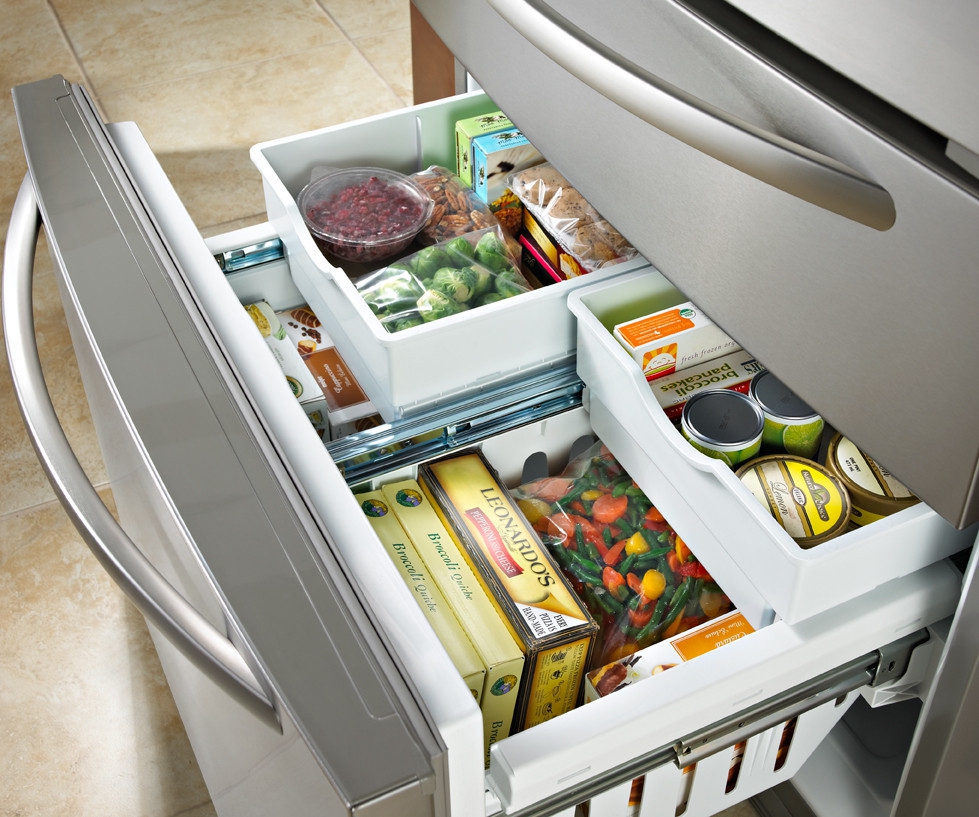Have you ever opened your freezer only to be greeted by a thick layer of frost or ice? This phenomenon can be frustrating, especially when you are trying to store food efficiently. Many people wonder why their freezer is frosting, as it can lead to reduced storage space and potential food spoilage. Understanding the reasons behind this common issue can help you maintain your freezer in optimal condition and extend its lifespan.
Freezers are designed to keep foods frozen and fresh, but when they start frosting up, it can signal underlying problems that need to be addressed. This article will explore the various reasons behind freezer frost buildup, how to troubleshoot common issues, and tips for preventing frost from accumulating in the future. With a little knowledge and maintenance, you can ensure your freezer operates effectively, keeping your food safe and sound.
If you're tired of dealing with a frosty freezer, read on to discover the key factors that contribute to this issue and learn how to resolve it. From improper sealing to humidity levels, we will cover everything you need to know to keep your freezer frost-free.
What Causes a Freezer to Frost Up?
The primary reason for frost accumulation in freezers is the introduction of moisture into the unit. This moisture can come from various sources, including:
- Frequent opening of the freezer door, allowing warm, humid air to enter.
- Poor door seals that allow moisture to seep in.
- Inadequate airflow due to overloading the freezer with items.
- Condensation caused by temperature fluctuations.
How Does Humidity Affect Freezer Frost?
Humidity plays a significant role in the frosting of freezers. When warm, moist air enters the freezer, it cools down rapidly and causes moisture to condense and freeze. The following factors are influenced by humidity:
- Geographic location and climate can impact the indoor humidity levels.
- Using the freezer frequently can increase humidity levels inside.
- Cooking or baking in the kitchen can introduce steam and moisture.
Is Overloading the Freezer a Problem?
Yes, overloading your freezer can lead to poor air circulation, which can contribute to frost buildup. When items are packed tightly, air cannot flow freely, causing some areas to freeze faster than others. To prevent this, consider the following:
- Organize items to allow for better airflow.
- Avoid cramming too many items into the freezer at once.
- Regularly check your freezer to remove expired or unwanted items.
Can A Faulty Door Seal Cause Frost Buildup?
Absolutely! A faulty door seal is one of the most common reasons for a frosting freezer. If the door gasket is damaged or worn out, it can allow warm air to enter, leading to moisture buildup and frost formation. To maintain a proper seal, consider these tips:
- Inspect the door seal for cracks or tears regularly.
- Clean the seal to remove dirt and debris that may affect its performance.
- Replace the seal if it appears worn or damaged.
What Role Does Temperature Play in Freezer Frost?
Temperature settings also influence the frosting of a freezer. If the temperature is set too low, it can cause excessive frost buildup. Conversely, if the temperature is too high, food might not freeze properly. Here are some guidelines:
- The recommended freezer temperature is 0°F (-18°C).
- Avoid setting the temperature too low, as it may contribute to frost accumulation.
- Use a thermometer to ensure your freezer is maintaining the appropriate temperature.
How Can You Prevent Freezer Frost?
Preventing frost buildup in your freezer can save you time and headache in the long run. Here are some practical tips:
- Limit the frequency of door openings to minimize warm air intrusion.
- Keep the freezer well-organized to allow for proper airflow.
- Seal food items in airtight containers to reduce moisture release.
- Defrost and clean your freezer regularly to remove existing frost.
What Should You Do If Your Freezer Is Frosting?
If you find that your freezer is frosting despite taking preventive measures, it may be time to troubleshoot the issue:
- Check the door seals for any signs of damage.
- Ensure that the temperature setting is appropriate.
- Inspect the freezer for any blockages or obstructions.
- Consider defrosting the freezer to remove excess ice buildup.
When Should You Call a Professional?
If you have tried all the troubleshooting steps and your freezer continues to frost excessively, it may be time to consult a professional. Signs that indicate professional help may be needed include:
- Constant frost formation despite proper sealing and temperature settings.
- Unusual noises or malfunctioning components.
- Persistent water pooling inside or outside the freezer.
Conclusion: Why Freezer Is Frosting?
Understanding why freezer is frosting can help you troubleshoot and prevent future issues. By addressing factors such as humidity, door seal integrity, and air circulation, you can keep your freezer functioning optimally. Remember to maintain a consistent temperature and organize your freezer to minimize frost buildup. If problems persist, don't hesitate to seek professional assistance to ensure your freezer remains a reliable appliance in your kitchen.
You Might Also Like
Discovering The Best Hotels And Resorts In ManaliMastering The Art Of Reading Fingerstyle Tabs
Exploring The Distance From Clarksville, TN To Nashville, TN
I Just Want To Talk And Conversate: The Art Of Meaningful Communication
Exploring The Rich Tapestry Of Indian Working Culture
Article Recommendations
- Marie Osmond Age A Closer Look At Her Life Career And Timeless Legacy
- Nicola Kilner Net Worth A Detailed Look At Her Life Success And Achievements
- Chole Surreql A Delectable Dish Celebrating Flavor And Tradition


